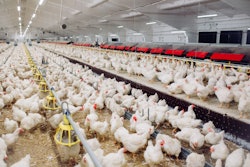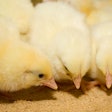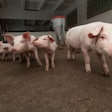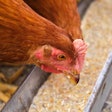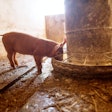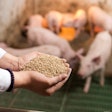
Often when a congressional hearing is held, it is the witnesses called to testify who feel pressure.
However, when the House Agriculture Committee held its hearing, “An Examination of the Implications of Proposition 12" on July 23, it was three committee members from California who were in the hot seat.
Yet those three – Reps. Jim Costa, Salud Carbajal and Doug LaMalfa – spent their five allotted minutes to speak or ask questions during the hearing quite differently. While only one of the three directly said he thought Proposition 12 was a bad thing, the other two were mostly evasive in sharing opinions on the matter.
Proposition 12 calls for all eggs raised in or sold in California to come from cage-free hens and all pork produced or sold in California to come from farms that do not use gestation stalls. The law has been long opposed by many people in other states who, if they want to sell their product in California, must comply with Proposition 12.
And even though the U.S. Supreme Court rejected claims that Proposition 12 was in violation of the Commerce Clause of the U.S. Constitution, the House Agriculture Committee continues to seek a solution to pork and egg producers in other states being forced to comply with the California law, thus the hearing was held.
Doug LaMalfa
LaMalfa – the only of the three before-mentioned California congressmen who is a Republican – made it clear he did not like Proposition 12, stating it was an initiative pushed by people who do not have a knowledge of what is best for animal production and animal welfare.
And he said if you look at how California, broken up geographically, voted for Proposition 12, it was also those who don’t understand animal production that favored the measure.
“If I showed you the map of how these votes went … all the internal counties in California, all the ones that have any kind of significant agriculture, voted against Prop 12,” he said, adding that it was the voters of “coastal areas and the elite areas of California” who voted in favor of it. Rep. Doug LaMalfaOfficial portrait
Rep. Doug LaMalfaOfficial portrait
LaMalfa identified animal rights group the Humane Society of the United States (HSUS) who really backed the Proposition 12 campaign. But he also indicated that he felt the organization was misleading in how it presented California agriculture in its advertisements, showing extreme animal mistreatment situations that anyone would oppose, and leading voters to believe that all such situations would be alleviated with the passage of Proposition 12.
LaMalfa also pointed out that many of those in Congress who seem hesitant to find a solution to Proposition 12’s effects as hypocritical, because they often talk about Supplemental Nutrition Assistance Program (SNAP) benefits and making food affordable, yet Proposition 12-compliant pork and eggs are less affordable.
Jim Costa
Costa was the first of the three to speak, and he prefaced his comments by saying he hoped the hearing would not turn into a “beat up on California” session.
 Rep. Jim CostaOfficial portrait
Rep. Jim CostaOfficial portrait
If members of the committee were truly concerned about the price of pork and eggs, Costa said, maybe the committee would be better off discussing other matters, such as highly pathogenic avian influenza’s impact on egg prices, or how tariffs pushed by the President of the United States have hurt relations with major trading partners like Canada, Mexico and China.
Costa also said he was disappointed with the selection of the witnesses for the hearing.
“I, with all due respect, am not feeling that the panel that we have here, as good as it is is balanced in terms of the different points of view that clearly are involved with a lot of the elements of agriculture and farmers that have adjusted and are taking advantage of the opportunities that Proposition 12 provides,” said Costa.
The hearing witnesses were:
- Patrick Hord, vice president, National Pork Producers Council (NPPC)
- Matt Schuiteman, board member, Iowa Farm Bureau
- Holly Cook, economist, NPPC
- Travis Cushman, deputy general counsel, litigation and public policy, American Farm Bureau Federation
- Lilly Rocha, executive director, Latino Restaurant Association
- Tiffany Dowell Lashmet, professor and extension specialist, Texas A&M AgriLife Extension, Department of Agricultural Economics
Hord, earlier in the hearing, acknowledged he has made “some conversions” to produce Proposition 12-compliant pork to help fill the market need, yet he is still concerned that California’s housing standards are “arbitrary” and that the American Veterinary Medical Association said Proposition 12 standards “do not objectively improve animal welfare and may unintentionally cause harm.”
Salud Carbajal
Carbajal did not directly say that Proposition 12-compliant pork was the superior product, but he did make the comment: “A lot has been said about California pork, but we all know it’s the best in the country. I know some of my colleagues feel otherwise.”
(Committee members from Iowa, North Carolina and Indiana all made similar claims – mostly with a tone of good-natured competition – about the superiority of their states’ pork.) Rep. Salud CarbajalOfficial portrait
Rep. Salud CarbajalOfficial portrait
While neither LaMalfa nor Costa asked questions of the witnesses, Carbajal asked several questions of Lashmet, and stopped just short of saying that Proposition 12 conditions have higher welfare outcomes in the process.
“What can Congress learn from those producers about how we can encourage stronger protection for animals, while also making sure farmers and ranchers have the support?” he asked.
Lashmet answered: “This (hearing) is a great example of there being two voices on both sides of this issue. I think that it would be useful for Congress to speak to producers who have made those compliance decisions, to get their input on whether they were useful for the farm, whether they did help to increase what they believe is animal husbandry standards on the farm or not.”



